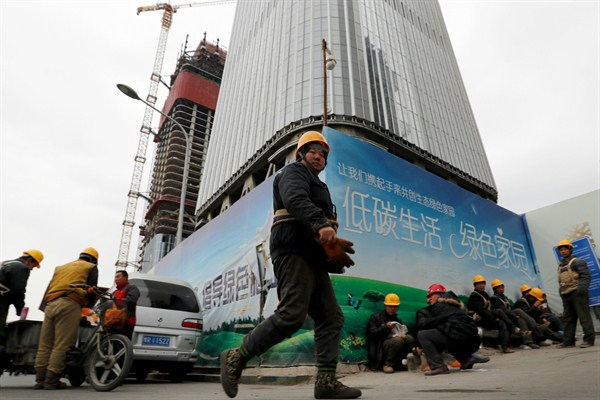Editor’s note: This article is the first in an ongoing WPR series about workers' rights in various countries around the world.
Labor organizations in China expect worker protests, which are common around the Lunar New Year, to spike in the coming weeks, in large part because workers from the “new economy,” which includes e-commerce workers, are experiencing problems with overdue payments for the first time. In an email interview, Cynthia Estlund, the Catherine A. Rein professor at the New York University School of Law and author of “A New Deal for China’s Workers?,” discusses workers' rights in China.WPR: What legal rights do workers have in China with regard to the right to organize, and what protections do they have in terms of labor standards and wages?
Cynthia Estlund: Workers in China have no right to organize their own independent unions. Collective representation of workers is the sole province of the official All-China Federation of Trade Unions and its affiliates, whose officials are appointed by and accountable to the governing Communist Party. Any overt challenge to that monopoly is harshly suppressed. The hostility to independent labor organizing casts a shadow of suspicion even over organizations that advocate for workers’ legal rights; such organizations must stay within narrowly prescribed boundaries and submit to official supervision, or risk official harassment or worse.

